detail profile sailen choudhury
Peran Yang Di Mainkan Sailen Choudhury
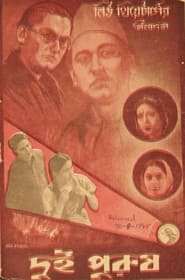 One of the early films of...
One of the early films of...Two Generations 1945
One of the early films of Chhabi Biswas featuring him as a leading man, before he came to be associated with the dominating patriarch roles that have become iconic in Bengali cinema, the film is a tale of the love, relationships and ideals of two generations. Nutubihari is an idealist who has given up his love for Kalyani for the sake of his beliefs. He marries Bimala and becomes a lawyer, fighting for the rights of the poor against the feudal lords. Meanwhile, Kalyani comes to ask refuge after she becomes a widow and is inexplicably accepted by Bimala with a lot of warmth. As the years pass Kalyani's daughter Mamata and Nutu's oldest son Arun fall in love and wish to get married. However, the new-found fame and fortune turns his head and Nutu begins to resemble all the ideals and vices that he had always despised. On the other hand in an ironical turn of events, Arun comes to occupy the position once held by his father, highlighting the generational conflict of ideals.
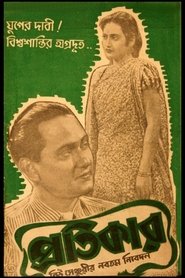 Sri Beniprasad owner of Model Drugs...
Sri Beniprasad owner of Model Drugs...Pratikar 1944
Sri Beniprasad, owner of "Model Drugs," discovers his workers’ grievances when he finds a bulletin circulated by them. Though his son Dilip is involved with the company, he advises his father to investigate independently. Taking on a disguise as a common laborer, Beni Prasad learns that his executives are dishonest and oppressive, even mistreating him. He is welcomed by Rammoy, a worker, and his family, where Jayanta, an enigmatic leader of the labor movement, regularly appears. During a secret meeting, Jayanta realizes Beni Prasad is undercover and orders his glasses broken, rendering him unable to see. Both Beni Prasad and Rammoy's daughter Reba question Jayanta’s true identity, which is revealed in a twist at the film's end.
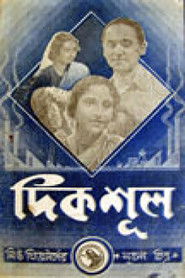 Dikshul is a 1943 Bengali film produced...
Dikshul is a 1943 Bengali film produced...Dikshul 1943
Dikshul is a 1943 Bengali film produced by New Theatres Ltd. Directed by Premankur Atorthy, the film featured music by Pankaj Mullick and cinematography by Rabi Dhar. Notably, the film's lyrics were penned by the renowned poet Kazi Nazrul Islam, and it marked the playback singing debut of actress Binota Roy.
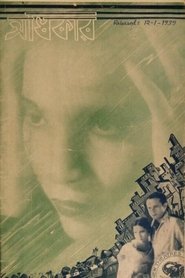 Melodrama about lineage and property questions...
Melodrama about lineage and property questions...Adhikar 1939
Melodrama about lineage and property questions. Nikhilesh (Barua) loves heiress Indira (Jamuna). A poor orphan girl, Radha (Menaka Devi), arrives claiming to be Indira's stepsister and therefore part inheritor of the family estate. Indira agrees to share her inheritance but then Radha makes a play for Nikhilesh. Ultimately, Radha turns out to be the real and sole heir. Love proves to be stronger than material possession as Indira and Nikhilesh get married and Radha finds happiness with Ratan, a man she had known and loved during her days of poverty. As each character returns to the class of his/her birth, the message hammered home is a warning to people never to transcend their social status.
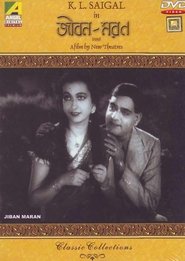 A famous radio singer Mohan Saigal...
A famous radio singer Mohan Saigal...Jiban Maran 1938
A famous radio singer Mohan (Saigal) is in love with Geeta (Leela Desai). When he goes to his friend a doctor, TB Specialist, Bijoy (Bhanu) for a check-up, he is found to be in an advance stage of TB. Meanwhile Leela's dominant mother and aunt (Nibhanani and Manorama) had been against the poor Mohan and had set their eyes on same Dr. Bijoy, the son of a family friend. When Mohan comes to know of it, and also his sickness, he decides to walk away from them. He is intercepted by a doctor who ran a sanatorium for TB patients, with some new method of treatment. Geeta couldn't forget Mohan and waited, but in the end she had to relent. Then it was known that Mohan was alive and cured. What would now Bijoy and Geeta do? There wedding was the next day, and they have to go ahead with it, the honour of both the families were at stake. Mohan too aware of his being exposed, disappears from the sanatorium and is untraceable.
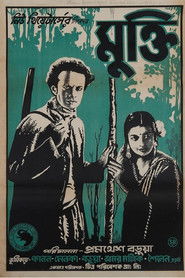 This classic adultery story tells of...
This classic adultery story tells of...Mukti 1937
This classic adultery story tells of an artist, Prasanta (Barua) presented in the stereotypically romantic image: dedicated to his vocation, paying no heed to his scandalous reputation (he paints nude models) and with a cavalier attitude to his conservative father-in-law's (Choudhury) demands for a good social behavior.

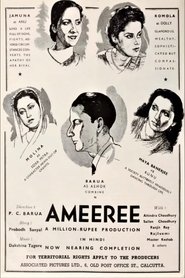
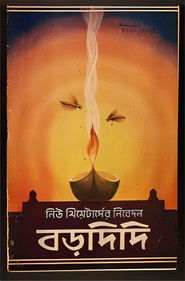 Suren prevented by his family from...
Suren prevented by his family from...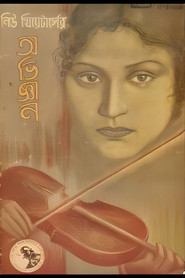 A wife rejected by her inlaws...
A wife rejected by her inlaws...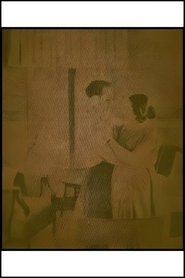 P C Baruas directorial debut film
P C Baruas directorial debut film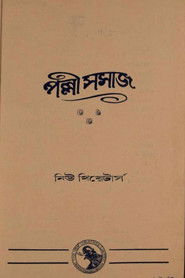 Sisir Kumar Bhaduris Palli Samaj A 1932...
Sisir Kumar Bhaduris Palli Samaj A 1932...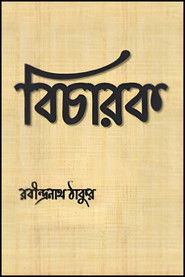 Bicharak is a powerful film that...
Bicharak is a powerful film that...